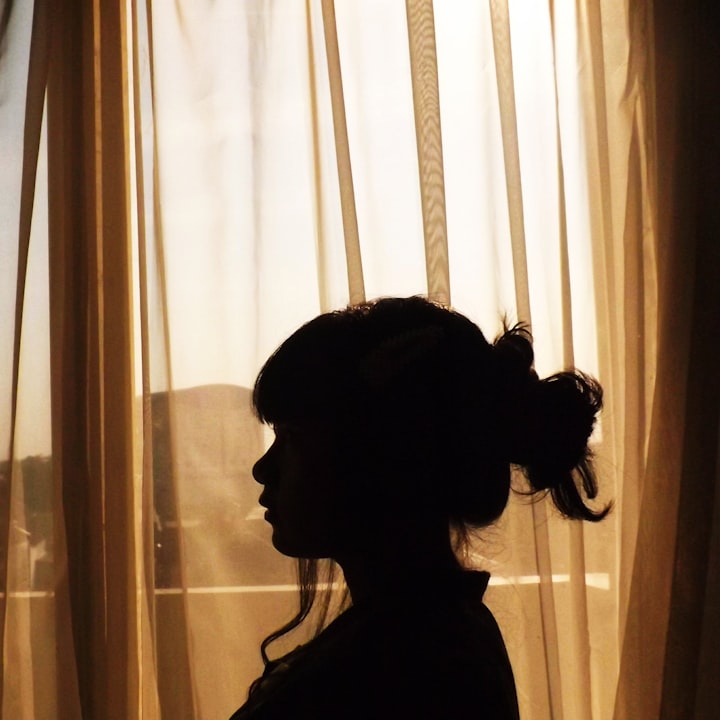The Life of an Introvert
Some thoughts that might be helpful

Has anyone ever asked you to change for them? Maybe someone who told you to lose weight. Maybe someone who told you, you would look prettier in certain clothes or with makeup on or if you smiled more. Has anyone ever asked you to get cosmetic surgery? When they asked, how did you feel? Did you change? Did changing make you happier?
Sometimes the people who love us ask us to change because they think it is better for us. They ask us to change so we can be healthier or happier. They ask us to change because they think it helps us. When it comes to introversion though, I think their advice on how to change is well-intended but still harmful. They know that something like being an introvert can harm your chances of being hired, of making friends, it can impact your physical and mental health, so they try to help you overcome it. But being an introvert shouldn’t be something that requires fixing or overcoming, it shouldn’t be something that needs to change for us to be healthy and happy. Acting like it is makes us feel like we’re broken somehow—wrong, bad, undeserving or incapable of succeeding as we are, unloved for who we are.
I have lived as introvert for 21 years. I think most people assume introverts don’t want friends or like being alone. That wasn’t true for me. I don’t think anyone likes being alone. I had a hard time making friends though. I was too shy to approach strangers, too awkward to start conversations or insert myself into established groups. I was also to shy to stand up for myself with the friends I did have. The more I tried to be around people the more exhausted I would get. For a long time, I hid in the many worlds of my books. I could pretend I was an assassin queen with friends who would die for her, an intelligent wizard whose friends would die without her, or a sassy warrior who fights for the rights of herself and others. In those worlds, being broken was a strength, it was what made heroes.
In this world, I can’t get hired. In this world, I have trouble making friends. In this world, I struggle to say what I want or need from those closest to me.
It’s not that I am not qualified for the jobs I apply to. I know I have the skills to do good work. It’s not that I am incapable of working with others. I actually work quite well in teams. I just struggle to represent myself well in applications. I’ve been told the best way to get a job is through networking. Reach out and talk with people who work where you want to work, and they’ll get to know you beyond an application. But the thought of reaching out to hundreds of strangers, trying to set up meetings with them, asking them for favors, fills me with anxiety and questions about how overwhelm me. How do I sound genuine? How do I open a conversation? When and where does reaching out become annoying? How do I find their contact information? How can I ask for favors when we’re strangers? It gets so bad that sometimes my stomach hurts, I get rashes, or I breakdown into uncontrollable sobbing. But when I actually find a job, am put on a team, I make friends easily, work well. I can be a leader and a follower and a mediator. Working like this makes me happy. I often wonder why the system is set up to make finding a job the hardest part of the job for someone like me. I think it’s because people are afraid to hire someone who can’t reach out to hundreds of strangers, like that makes them incapable of working well with others.
It’s not that I don’t want friends or don’t have the energy to be with friends. My happiest memories of high school are when I was spending time with all my friends. Eating lunch together. Meeting every morning before school. Complaining about our teachers or homework. Having sleepovers: eating junk food and watching bad movies and talking about our lives until the early morning. Even if it exhausted me spending time with them, I wouldn’t trade it for anything. But I was usually quieter, usually hidden within the group. Don’t get me wrong, there were times I was the one talking over others or asserting my own opinions, but most of the time I was happy to listen. I think I heard my friends in ways others didn’t; I would listen to their body language too. But others often saw my listening as aloofness, withdrawal. I had a hard time making new friends because they believed I thought I was better than them, wasn’t interested in them. The friends I had often thought they didn’t need to include me, that I didn’t want to be included most of the time. I wish I could have told them all that was in my heart.
It isn’t because I can’t talk with my close friends and family, that I don’t trust them or am too shy. I often simply just don’t know how to describe what it is like for me. How do you put these feelings into words and make sense? I feel so lonely and I don’t want to be alone but being with you is exhausting? I want to do things with you but the social pressure and the expectations fill me with dread so I stay away? I feel broken or like I disappoint you when I don’t talk much or engage or grow tired? I feel like a bad daughter, sister, cousin, niece, or friend when I am honest?
Has anyone ever asked you to change for them? As an introvert, I feel everyday that people ask me to change for them. I should talk more and smile more and engage with others more. I should just reach out to people if I want to make friends or get a job. I should be authentic, but I shouldn’t let anyone know. If I don’t change, I might not have good relationships with others. I will have a harder time finding a job. I will not succeed. Sometimes it feels like pieces of me are being cut off until I am the twisted image the world desires me to be. But changing like this doesn’t make me happier. It is painful and it is exhausting and it is lonely.
I don’t speak for every introvert in the world, we are all unique people, but when you are engaging with one of us maybe try to be a little more patient. Approach them with understanding and a willingness to learn. Don’t assume they like being left alone, find out how they prefer to engage comfortably. Don’t assume they will tell you if they are uncomfortable or something is wrong, learn to listen beyond words. And don’t force them to change for you or all you will get is a mutilated corpse and not the beautiful fountain of potential they are.
About the Creator
Natasha Couoh
I have always known that I am a writer. I let others persuade me that I am not good enough to be a writer, my spelling is...bad, and I have never understood grammar, but now I am here to prove that I can be anything and everything.






Comments
There are no comments for this story
Be the first to respond and start the conversation.